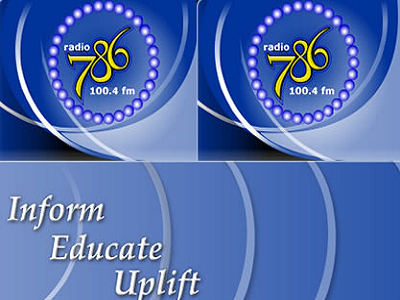
By Nurah Tape – Cape Town
In what is described as a “test for South Africa’s democracy”, a community radio station in Cape Town broadcasting to a mainly Muslim audience is locked in a protracted legal battle with the South African Jewish Board of Deputies (SAJBD).
The case has been kept alive for more than a decade with both parties vying for a resolution through the courts. At one stage, it reached the highest court in the land, the Constitutional Court, resulting in key legislation being struck down.
Now, the two parties are going head on head in front of the country’s communications regulating body, the Independent Communications Authority of South Africa (ICASA), namely its Complaints and Compliance Committee (CCC).
The dispute relates to a broadcast aired on Radio 786 in 1998 wherein the topic of Zionism and the State of Israel was explored with Dr. Yaqub Zaki, a Scottish-born academic. The broadcast coincided with the 50th anniversary of Israel’s founding.
The SAJBD alleges that comments made in the broadcast amounted to hate speech.
UK Professor David Hirsch, one of its key witnesses to have taken the stand thus far, described the program as a “clear and conscious attempt to advocate for an anti-Semitic world view”.
But Radio 786’s representative for its legal team, Ali Mia Chicktay, says that in the history of the case, “no such agenda has been proven.”
“At the end of the day,” says Chicktay, “it is about criticizing Israel.”
The SAJBD, he adds, wants to dictate to the media about what they can and cannot do, what they can and cannot say.
He says the Jewish body was invited onto the station to present its views but “instead of engaging with us (Radio 786) and debating, they rejected us.”
“Because according to them, this cannot be debated. So what does this make of our democracy?”
The board’s representative, Mary Kluk, says it celebrates the fact that South Africans have a right to express themselves. “The difficulty is when that freedom crosses the line”, she says, “and amounts to hate speech.”
Kluk says people need to be sensitized as “we all know, mass atrocities, doesn’t begin with killings. It starts with words.”
According to Radio 786, the SAJBD is on record as having stated that it monitors the radio station 24 hours a day.
Chicktay questions the implications of that, saying that in 1995 with the birth of the new democracy and democratization of the airwaves, “why would an organization like the SAJBD, with their might and power, want to trip up and pounce on a small community station like 786?”
In the first three days of the hearing, the SAJBD’s witnesses who testified included the president of the SA Rabbinical Association, Rabbi Yossy Goldman. He sought to discredit the testimony to be presented by Neturei Karta Rabbis on behalf of Radio 786.
The SAJBD legal team was forced to withdraw documents it presented as evidence in the case sought to discredit the said Rabbis Aharon Cohen and Dovid Weiss.
In testimony for the SAJBD, it was suggested that even though the rabbis might have religious qualifications, they could not be regarded as such until they have a congregation. But neither their qualifications nor communal standing could be disputed by the SAJBD, as all its information was based on hearsay, said Radio 786 in a statement.
The rabbis, along with US attorney, Stanley Cohen and a Holocaust survivor, Hedy Epstein, will give testimony in Radio 786’s defense at the CCC hearing.
“In trying to discredit our witnesses, it is evident that the SAJBD is not only opposed to Radio 786 exercising its right to broadcast varied views and opinions, but that the SAJBD is also opposed to the right of these rabbis to express themselves freely on pertinent topics.”
Ultimately, what the SAJBD wants, says Kluk, is an apology from Radio 786.
This is “bully-boy tactics,” says Radio 786’s Chicktay, “these things do happen in the media.”
“We believe freedom of expression as enshrined in the Constitution guarantees that media are able to disseminate information freely such that the public is allowed to decide and freely formulate their opinions.”
The Islamic Unity Convention (IUC), which is the license holder of Radio 786, requested South Africa’s Freedom of Expression Institute (FXI) to make a submission as a friend of the court. This request was opposed by the SAJBD as it felt the FXI would side with Radio 786.
That decision by the CCC with regards to the FXI submission is still pending.
The hearing will continue in 2013.
– Nurah Tape contributed this report to PalestineChronicle.com.





